Pennsylvania conservatives in the House and Senate have been aggressively seeking to undermine the ability of state agencies to protect wild and endangered species since June of of last year. The mechanisms through which these efforts have been channeled is Pennsylvania House Bill 1576 and Senate Bill 1047, otherwise known as the Endangered Species Act. The most recent revision of HB 1576 has been met by success, passing through the House Game & Fisheries committee in November of this year, and now sits awaiting listing for a vote on the House floor.
If the bill becomes law, it will dramatically diminish the ability of the Pennsylvania Fish and Boat Commission (PFBC) and Pennsylvania Game Commission (PGC) to protect wild trout and endangered species throughout the state by miring the now independent processes of these agencies within a heavily politicized, bureaucratic process that serves to produce the opposite of the effects its proponents use to justify the bills' proposal.
What is Proposed?
The originally proposed version of the two bills sought to place a set of restrictions on the establishment new designations for threatened and endangered species and/or wild trout that seemed almost too draconian to be taken seriously. Included were the following provisions:
- PGC would be unable to designate species as threatened or endangered in Pennsylvania unless those species were already designated as federally threatened or endangered throughout the U.S.
- Even those species that had existing federal threatened or endangered designations could still not be designated as such in Pennsylvania unless it was considered endangered throughout a significant portion of its entire federal range
- PFBC would no longer be able to provisionally designate a stream as class A wild trout water in advance of its formal designation in the Pennsylvania Bulletin, severely limiting the PFBC’s ability to protect exceptional value waters in advance of their emergence from the often multi-year designation process
- Endangered species designated by the PGC would be automatically de-listed after two years unless the agency undertakes the process required to re-designate that species before that time.
- Existing law requires entities proposing new development to bear the costs involved with determining whether endangered species exist within the suggested development area. Provisions within the bills would shift these costs to state agencies, placing the burden on taxpayer-funded agency budgets instead of on the business interests seeking to profit from the proposed development.
- PGC and PFBC actions to list wild trout waters and threatened or endangered species would be subject to approval by the IRRC (Independent Regulatory Review Committee) as well as legislative committees in both the Pennsylvania House and Senate before taking effect.
The most recent revision of HB 1576, and the one that recently passed the aforementioned vote by the Pennsylvania House Game and Fisheries Committee, has seen some of the original provisions -- including the automatic de-listing and pre-existing federal designation requirements removed -- but have done little to address the bill’s more troubling and damaging provisions. The Senate bill, which has yet to go to committee, has seen no revisions and thus retains all of the original language.
Despite being only one of the bill’s many provisions that would lead to a degradation of the PGC and PFBC’s effectiveness, the introduction of the need for IRRC and legislative committee approval into the process for designating wild trout waters and threatened or endangered species is widely seen as the most damaging.
The Likely Results
Detractors of the bill have indicated that introduction of the IRRC and the legislative Game & Fisheries Committees into the process would place an extensive bureaucratic burden on state agencies. As a result, the timeframe required to complete the process of establishing new wild trout water and endangered species designations could swell to as much as two years or more. Although the IRRC process is subject to time constraints, the current versions of both the house and senate bills place no time limits on legislative committee review, which could potentially allow congressional members of those committees to indefinitely delay pending PFBC and PGC actions.
In a statement by the Game Commission, it noted that “the administrative process outlined in this legislation slow and cumbersome, wasting valuable time. The listing of species through the IRRC process will be too time consuming to respond to an immediate crisis that may be caused by a significant decline in a population from disease or other population-wide limited factor, allowing the species to become extinct by the time IRRC acted."
Even proponents of the bill have conceded that the IRRC has no scientific expertise to contribute to the process designating wild trout waters or that designating threatened or endangered species, and have been unable to provide any justifications beyond rhetoric for its introduction into these processes. During a hearing earlier this year, Sarah Miller -- lobbyist for the Pennsylvania Builder’s Association and former IRRC employee -- was unable to provide any examples or knowledge of existing erroneous wild trout water or threatened and endangered species designations that IRRC review might have helped to prevent.
Perhaps more important is the understanding that amongst the many reasons that the PFBC and PGC were established as independent state agencies was the goal of protecting the actions of these two agencies free from political influence. The proposed bills seek to eliminate this protection by introducing both the IRRC and Game & Fisheries Commissions into the process. While the IRRC is established as and independent board of review, its members are appointed by the governor. The legislative committees in the House and the Senate, on the other hand, are under strict majority control by conservatives in both the House and the Senate.
So Why is it Proposed?
Proponents of the bill have put forth the usual suspects as justification for its proposal: reduction of big government oversight and regulation, protecting the survival of the small businessman, increasing the transparency of the supposedly shrouded PGC and PFBC processes, striking a balance between natural resource protection and economic development and so on.
However, as is often the case, the true motivations of the bill’s sponsors and those who support it bear little resemblance to its stated purposes. PGC endangered species designations and PFBC Class A Wild Trout Water designations, once put in place, can act as barriers to large scale construction, energy extraction and other development efforts of the large corporations which seek to undertake them. Handicapping or eliminating the ability of these state agencies to put in place further such designations means no new barriers, which is obviously a major boon to those seeking to develop.
Those in doubt regarding the true motivations of the bill need to look no farther than the list of signatories of a recent letter declaring support of the bill which was delivered to Pennsylvania legislators. The 25 companies and organizations who signed on in support of the letter represent, virtually exclusively, the energy extraction industry and construction industry which directly supports and benefits from expanded development within the energy industry.
Signers of the letter include the Marcellus Shale Coalition, Associated Petroleum Industries of Pennsylvania, Pennsylvania Asphalt Pavement Association, Pennsylvania Anthracite Council, Electric Power Generation Association, Pennsylvania Independent Oil & Gas Association, Energy Association of Pennsylvania, Pennsylvania Coal Alliance, the Pennsylvania Chapter of the American Concrete Pavement Association and more. Others signing on to the letter included corporate representatives the agricultural, commercial real estate and manufacturing industries, as well as representatives from various local chambers of commerce and business development groups.
A Solution Seeking a Problem
Even the most ardent supporters of the proposed bills have provided little, if any, evidence demonstrating the need for eliminating the independence of the PFBC and PGC. As noted above, when pressed for specific examples of endangered species or wild trout water designations gone awry, legislators and lobbyists in favor of the bills fail to provide examples. Like much other legislation of the day that masquerades its true motivations, HB 1576 and SB 1047 are widely seen by detractors as solutions seeking a problem.
In a letter recently co-signed by six of Pennsylvania’s most prominent sportsmen’s organizations, it was stated that “the Fish and Boat Commission and the Game Commission have not abused their discretion. In reality, in the last five years the Fish and Boat Commission has added 13 species and de-listed 11, so the scientifically driven pendulum swings both ways. The Game Commission has added three in the last 10 years. Pennsylvania has a long and proud tradition of allowing independent commissions staffed by nationally-recognized wildlife and aquatic experts to manage the flora and fauna of the Commonwealth without undue political interference.”
Claims by bill supporters regarding a lack of transparency in the processes undertaken by the PGC and PFBC are also widely seen as unfounded. In the aforementioned letter, the authors state, "both the Fish and Boat Commission and the Game Commission have the scientific expertise to conduct rigorous and sufficient oversight with an extremely transparent processes for designating the species and in designating wild trout water. The process includes peer reviews and lengthy public input opportunities with agency review and response. It takes six to nine months to complete and includes two periods of public comment and two separate votes by the Board of Commissioners. Any regulatory action by the Board of Commissioners must be in accordance with the Game and Wildlife Code, the Sunshine Act, the Commonwealth Documents Law, the Commonwealth Attorneys Act and is subject to judicial review."
Where Things Stand & What’s Next
As noted, the House bill successively passed through the House Game & Fisheries Committee late last year. It is expected to go to the House floor for a vote this month. Though the Senate bill has yet to even go to committee, it is widely expected to follow in the footsteps of the House version when and if the bill passes.
The Senate Game & Fisheries committee is holding a hearing today seeking testimony identifying problems with the current state agency processes involved in designating endangered species and wild trout waters. Legislators, private lobbyists and other industry representatives, and representatives from the PGC and PFBC were invited to testify at the hearing. Sportsmen and conservation groups were excluded.
The bills' sponsors and supporters have demonstrated repeatedly that they do not intend to let either bill fall by the wayside. It is up to individuals and sportsmen’s organizations throughout the state to make their voices heard to their representatives, urging them not to support either bill.
In a statement by Trout Unlimited, Pennsylvania Chapter President Brian Wagner said, “it is clear that the proposed bills are intended to slow down, or even bring to a halt, the process of listing wild trout streams and as a consequence, streams where wild trout are present are left unprotected. As the recent Act 13 Supreme Court ruling pointed out, the Commonwealth has an affirmative duty to protect natural resources—including fish and wildlife—for current and future generations.”
The provisions put forth by the bills and the testimony of their supporters leave very little ambiguity about the true intentions of the proposed legislation and who the beneficiaries would be should they become law. Those who value Pennsylvania’s wild and natural places can not afford to sit idly by while the agencies that are tasked with caring for and protecting these places are rendered ineffective in an effort to further flood the coffers of private industry and other interests throughout the state.







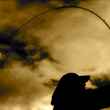
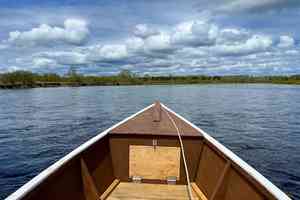












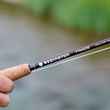
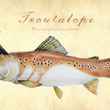







Comments
PoconoTrout replied on Permalink
Everyone I know who is affiliated with organizations that are educating their members about this legislation (liek TU) is against it. I'm not sure all of them are taking the time to make their voices heard, but they're at least opposed.
But I've talked to a lot of people that consider themselves outdoorsy folk that support it. Not because they understand it, but because it is employing the bullshit "no more big government" rallying cry. Anything to stop those damn liberals at fish and boat from turning the whole state into a giant wild trout reserve!
ginkthefly replied on Permalink
While this is horrifying, does it honestly come as a surprise? Conservative legislators in America are, almost without exception, shamelessly legislating specifically for the benefit of big business. What makes it so additionally infuriating is that they're doing so while claiming their actions are to benefit the middle class and hard working Americans. Not only are those claims untrue, they're the exact opposite of the truth.
I can't understand why the peasants keep cheering for the lords.
kyfishsonic replied on Permalink
This is terrible, it is being pushed by big corporations who only care about profit, to lay all conservatives in that same bed is ridiculous. After all most outdoorsmen that I know are consvervative and seek to ensure the future of the sport that they love and hope to pass down. To say all conservatives are about the dollar and nothing else is wrong, I know there are liberals out there, that would love nothing more than to take away our right to enjoy nature in the sporting tradition, while destroying nature to make a dollar. Government is corrupt, whichever side of the isle you are on. We can not leave the future of our fish and wildlife in the hands of politicians, we must make our voices heard afterall we are there employer.
A Conservative
PoconoTrout replied on Permalink
The article is clearly talking about conservative representatives, not all conservatives.
Instead of finding a reason to make this a conservative vs. liberals issue, conservatives like yourself should be calling out these conservatives for giving the rest of you a bad name. Protecting our natural resources and heritage is a hallmark of classic conservatism, and the republican party has thrown that hallmark by the wayside in order to placate big business.
Steve K replied on Permalink
It was a little odd to have the article's title be about conservative support, when the only nexus was: "The legislative committees in the House and the Senate, on the other hand, are under strict majority control by conservatives in both the House and the Senate."
The bill's sponsors were not named, so we don't know (from this article) their political philosophy. In my own state of California, the largest industries are apolitical, and will contribute on both sides of the aisle to whoever will scratch their back.
It may be helpful to round out the discussion by linking to records of campaign contributions by the commercial interests mentioned in the article.
Applefake replied on Permalink
Good.
If the voters put in these conservative politicians, then let the citizens of PA rejoice in the further degradation of their water, air, soil and quality of life. They deserve it.
K.Kaufman replied on Permalink
Notwithstanding the merit of your position, your contention that the members of IRRC are appointed by the Governor is incorrect. Only one member is appointed by the Governor, the other four are appointed by the majority and minority leadership in the House and Senate respectively. Also, the IRRC process is not designed to delay necessary action. A process for emergency regulations can allow such a regulation to be placed into effect, with the regulation placed into consideration after the fact. IRRC functions to allow the legislature to provide oversight into what is largely an Executive process and provide a forum for public comment. The Commissioners and staff rely on the input of all interested parties in the review and comment on regulations.
Pages